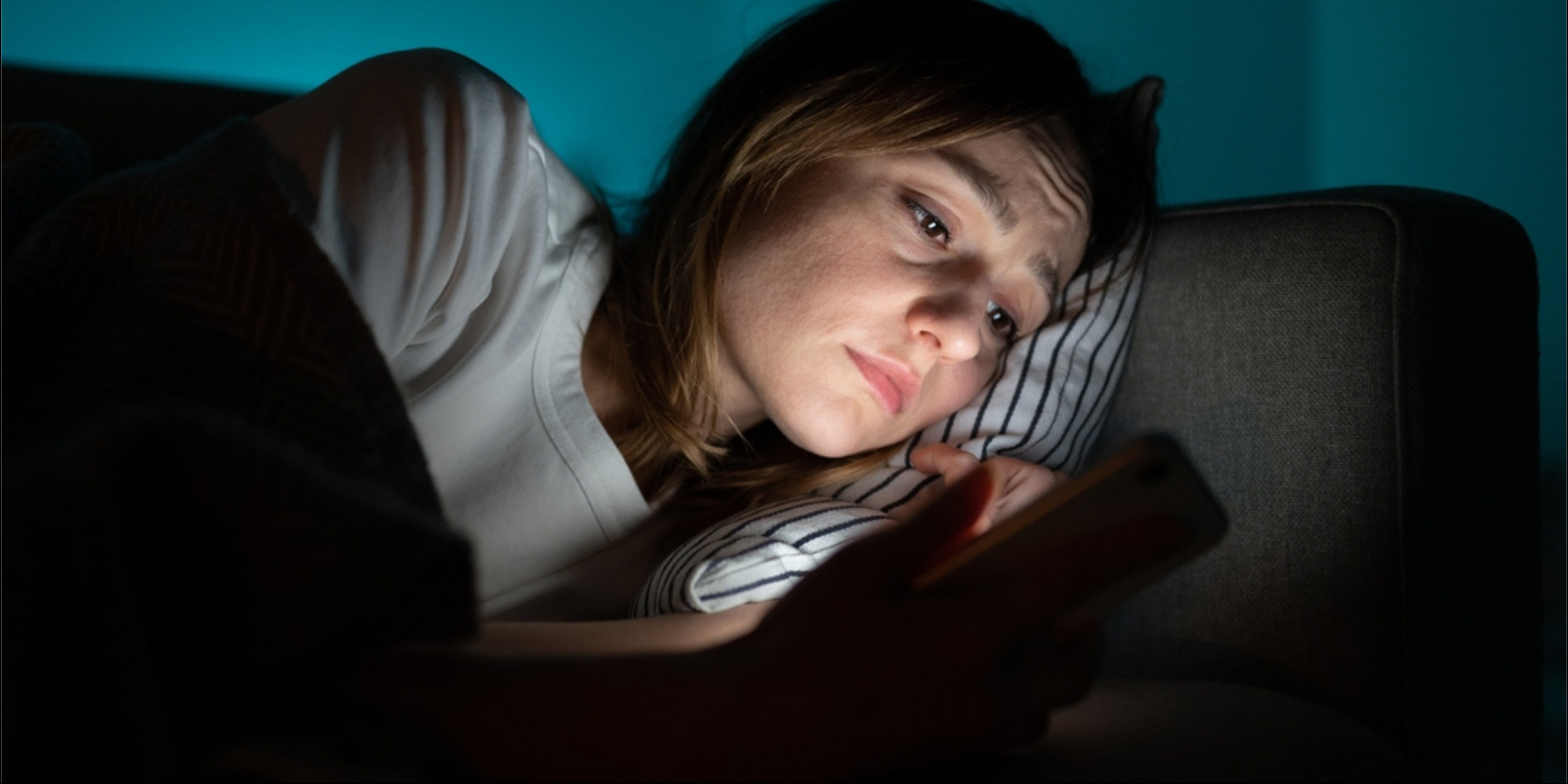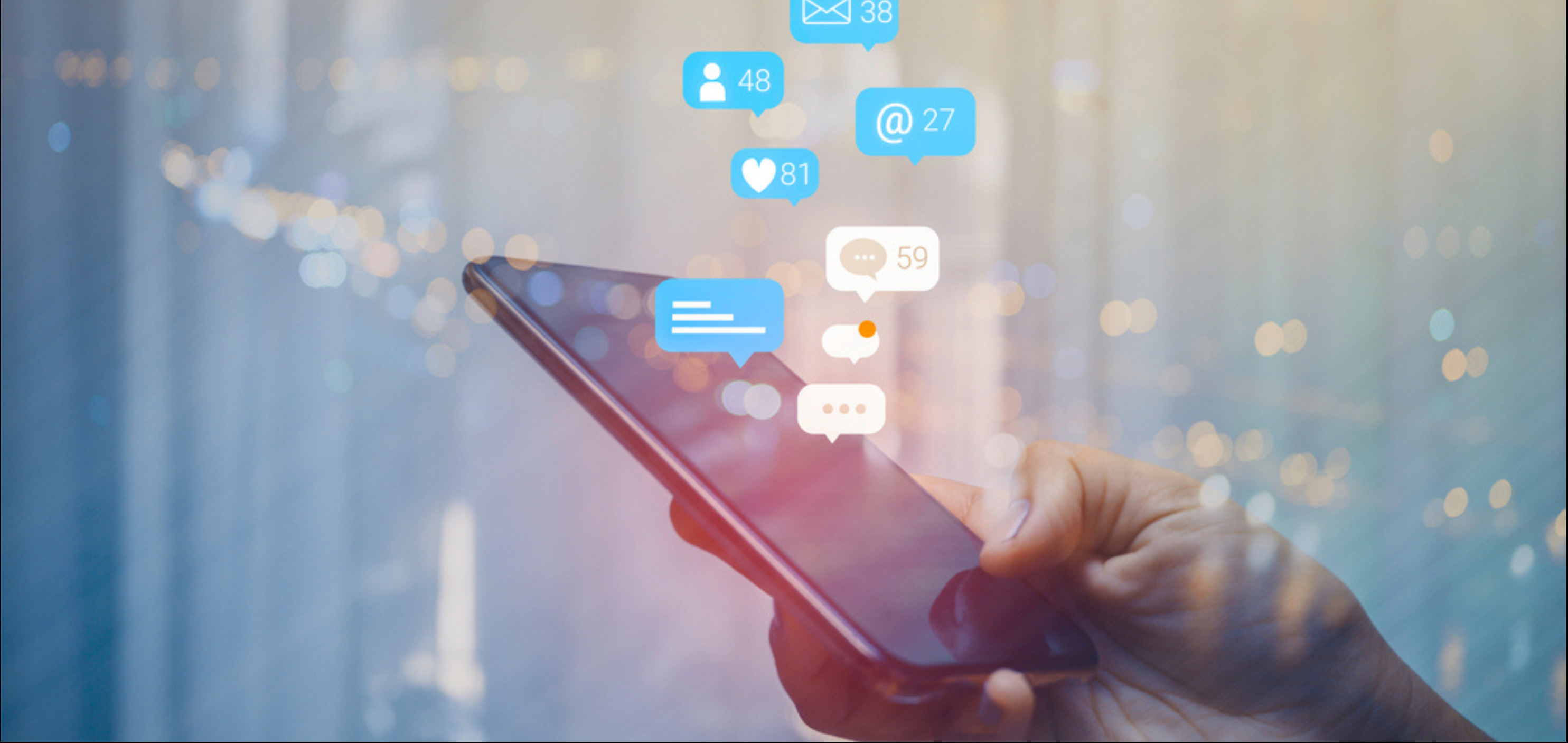
Written by:

Medically Reviewed by:
Last Updated:
September 18th, 2025
Social Media Addiction
Social media addiction is a behavioural condition where someone feels compelled to spend excessive time on social media platforms, often to the point where it disrupts daily life. While it’s not officially listed in the DSM-V (Diagnostic and Statistical Manual of Mental Disorders), many mental health practitioners acknowledge it as a genuine concern due to its impact on mental well-being.
This type of addiction isn’t limited to one platform, as it includes anything from scrolling endlessly through Instagram and TikTok to constantly checking messages on WhatsApp or updates on Facebook. The need for connection, validation or even distraction can make these platforms difficult to step away from, creating a cycle that can be hard to break.
Recognising the signs is an important first step toward finding balance and regaining control.

What are the risk factors involved in social media addiction?
A social media addiction goes far beyond chasing likes and comments. While platforms are designed to capture attention, the underlying reasons for developing an addiction often stem from deeper psychological traits and mental health factors already present.
Research suggests that social media can amplify certain negative traits, making some individuals more vulnerable to addiction. For instance, impulsivity and low self-esteem are significant risk factors.
Impulsive individuals may struggle to resist social media’s constant notifications due to an imbalance between reflective and impulsive brain systems. This can cause them to seek social media as a quick emotional fix, even if it leads to negative consequences later.
Low self-esteem also plays a critical role. People with lower self-worth might turn to social media for validation, using likes and comments as temporary boosts. This digital approval can create a cycle where individuals become increasingly reliant on social media to manage their emotional states, deepening the addiction.
While other factors may influence a social media addiction, it could be suggested that those with underlying issues are more at risk than others in forming an addiction.
What are the signs of social media addiction?
There are some tell-tale signs of social media addiction, but others can be harder to detect. These signs often develop gradually, making them easy to overlook until social media use starts affecting everyday life. Below, we explore two key areas where social media addiction can manifest.
Behavioural signs
- Excessive screen time: Spending hours scrolling through social media, even when it disrupts important tasks like work, school or family time.
- Neglecting responsibilities: Prioritising social media over responsibilities, leading to missed deadlines or neglected personal obligations.
- Social withdrawal: Preferring online interactions over face-to-face conversations with friends and family.
- Sleep disturbances: Staying up late browsing social media, causing disrupted sleep and increased fatigue.
- Constant checking: Feeling anxious or restless when unable to check notifications, leading to frequent device use in inappropriate settings (e.g., during meals or meetings).
Psychological signs
- Mood swings: Experiencing emotional highs after receiving likes or comments, followed by lows when posts receive little attention.
- Low self-esteem: Relying on social media validation to feel good about oneself, which can worsen existing insecurities.
- FOMO (fear of missing out): Feeling anxious or left out when not up-to-date on social media trends or friends’ activities.
- Obsessive thoughts: Constantly thinking about social media, including what to post next or how to improve one’s online presence.
Emotional dependence: Using social media as a coping mechanism for stress, loneliness or boredom, often without realising it.
Do I have a social media addiction?
Social media has become a normal part of everyday life. For example, a quick glance around a train carriage reveals how engrossed people are in their phones. But among all those users, how many are actually addicted to social media? It’s hard to say. What we can do, though, is regularly check in on ourselves and assess our relationship with these platforms.
Here are six questions to ask yourself. If you answer ‘yes’ to several, it could indicate a social media addiction:
- Do you find yourself spending more time on social media than you intended, often losing track of time?
- Do you feel anxious, restless or irritable when you can’t access your social media accounts?
- Has your social media use negatively impacted your work, studies or relationships?
- Do you often check social media first thing in the morning or last thing at night, even when it affects your sleep?
- Do you rely on likes, comments or online interactions to boost your self-esteem or improve your mood?
- Do you find it difficult to focus on tasks without feeling the urge to check social media?
How is social media addiction treated?
Social media addiction, like any behavioural addiction, can feel overwhelming, but help is available, and recovery is within reach. At Liberty House, we offer a specialised social media addiction programme designed to address the emotional, psychological and behavioural aspects of the addiction.
The cornerstone of our social media addiction treatment approach is therapy. Our therapies are tailored to treat social media addiction by targeting the unique emotional and behavioural patterns that keep individuals stuck in compulsive social media use.
Here’s what we offer:
- Cognitive behavioural therapy (CBT): This therapy focuses on identifying and challenging the compulsive thought patterns that drive excessive social media use. It helps individuals recognise triggers, such as boredom or stress and replace scrolling habits with healthier coping mechanisms. CBT also works to rebuild self-esteem, which is often impacted by the comparisons made on social platforms.
- Dialectical behaviour therapy (DBT): DBT addresses intense emotions, such as anxiety, fear of missing out (FOMO) or feelings of inadequacy, that often accompany social media addiction. By teaching skills like emotional regulation and mindfulness, DBT helps reduce the emotional triggers that lead to compulsive scrolling.
- One-to-one counselling: This offers a private space to explore deeper issues, such as loneliness, social anxiety or past experiences, that may contribute to the reliance on social media. Individualised guidance helps uncover the root causes and supports sustainable recovery.
- Group therapy: Social media addiction can isolate individuals from meaningful, real-world connections. Group therapy fosters a sense of community, accountability and shared understanding, allowing individuals to rebuild social bonds and gain valuable perspectives from others on a similar journey.
- Holistic therapies: We also offer holistic therapies like yoga, mindfulness and art therapy to help manage stress and improve overall mental clarity. These practices encourage relaxation, self-reflection and a greater sense of balance, making it easier to break free from the grip of social media.
If social media addiction is impacting your life, our programme can provide the support and tools needed to regain control and rebuild healthier habits. Recovery is possible, and we’re here to help every step of the way. Reach out to Liberty House today for more information on the next steps.
Frequently Asked Questions
(Click here to see works cited)
- Zhao J, Jia T, Wang X, Xiao Y, Wu X. Risk Factors Associated With Social Media Addiction: An Exploratory Study. Front Psychol. 2022 Apr 14;13:837766. doi: 10.3389/fpsyg.2022.837766. PMID: 35496214; PMCID: PMC9046602.






